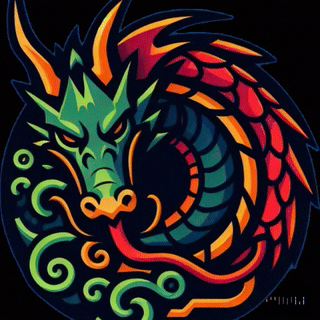The Hierarchy of Greek Gods: An In-Depth Exploration
Introduction
The mythology of ancient Greece is a complex and multi-layered belief system that has captivated scholars, historians, and general readers alike. Central to Greek mythology is the hierarchy of gods, which reflects the values, politics, and cosmology of the ancient Greeks. This paper explores the structure of divine authority in Greek mythology, detailing the different classes of gods, their functions, and their significance in ancient religious practices.
The Primordial Deities
At the foundation of Greek mythology are the primordial deities, the first beings to emerge from Chaos, the void of existence. These deities represent fundamental elements of the universe:
Chaos – The initial state of the cosmos, often described as a formless void.
Gaia (Earth) – The personification of the Earth and mother of many later deities.
Uranus (Sky) – The sky god and consort of Gaia, father of the Titans.
Nyx (Night), Erebus (Darkness), Aether (Upper Air), and Hemera (Day) – Other key primordial figures who represent fundamental aspects of existence.
The Titans: The First Generation of Gods
The Titans were the children of Gaia and Uranus and played a crucial role in shaping the world before the rise of the Olympians. Some of the most important Titans include:
Cronus – The leader of the Titans who overthrew Uranus and later became the father of Zeus.
Rhea – Cronus’s consort and the mother of the Olympian gods.
Oceanus and Tethys – Deities of the ocean and freshwater sources.
Hyperion and Theia – Parents of the celestial deities Helios (Sun), Selene (Moon), and Eos (Dawn).
Prometheus and Epimetheus – Titans known for their role in the creation of humanity and the introduction of fire to humans.
The rule of the Titans came to an end with the Titanomachy, a great war between the Titans and the Olympians, led by Zeus. Following their defeat, most Titans were imprisoned in Tartarus.
The Olympian Gods: The Supreme Deities
The Olympians, the most well-known deities in Greek mythology, reside on Mount Olympus and govern the world. These gods include:
Zeus (King of the Gods, god of the sky and thunder)
Hera (Queen of the Gods, goddess of marriage and family)
Poseidon (God of the sea, earthquakes, and horses)
Demeter (Goddess of agriculture and the harvest)
Athena (Goddess of wisdom, warfare, and crafts)
Apollo (God of the sun, music, poetry, and prophecy)
Artemis (Goddess of the hunt, wilderness, and childbirth)
Ares (God of war)
Aphrodite (Goddess of love and beauty)
Hephaestus (God of fire, blacksmithing, and craftsmanship)
Hermes (Messenger of the gods, god of commerce and travel)
Dionysus (God of wine, festivity, and theater)
These gods played an essential role in both mythology and the daily lives of ancient Greeks, influencing their religious practices, festivals, and civic institutions.
Chthonic Deities and Lesser Divinities
Beyond the Olympians, numerous other deities played significant roles in Greek religious life. Chthonic deities, associated with the underworld and the afterlife, include:
Hades (God of the Underworld, ruler of the dead)
Persephone (Queen of the Underworld, goddess of spring and renewal)
Thanatos (Personification of death)
Additionally, minor gods, spirits, and demigods existed, such as the Muses (patrons of the arts), the Fates (controllers of destiny), and the Nymphs (spirits of nature).
Influence and Legacy
The hierarchy of Greek gods has had a lasting impact on Western literature, philosophy, and religion. Their myths influenced Roman mythology, Christian theological concepts, and modern popular culture. Understanding their structure provides insight into ancient Greek values and their vision of divine order.
Further Reading and Scholarly References
For readers interested in deeper exploration, the following sources provide valuable insights:
Burkert, W. (1985). Greek Religion. Harvard University Press.
Hesiod. (8th Century BCE). Theogony (translated by M.L. West). Oxford University Press.
Morford, M.P., & Lenardon, R.J. (2014). Classical Mythology (10th ed.). Oxford University Press.
Apollodorus. (2nd Century CE). The Library of Greek Mythology (translated by R. Hard). Oxford University Press.
Graf, F. (1993). Greek Mythology: An Introduction. Johns Hopkins University Press.
For academic resources, databases such as JSTOR (www.jstor.org) and Project MUSE (muse.jhu.edu) provide peer-reviewed articles on Greek mythology.
Conclusion
The hierarchy of Greek gods reflects a structured and deeply symbolic worldview that remains influential today. From the primordial beings to the Olympians, this divine order shaped the mythology, culture, and religious beliefs of ancient Greece, leaving an enduring legacy that continues to inspire scholars and enthusiasts alike.
480-366-3550 (Domain Sales)
© SDBEST LLC, 2025. All rights reserved.
Sponsorship Disclosure
Terms of Service
